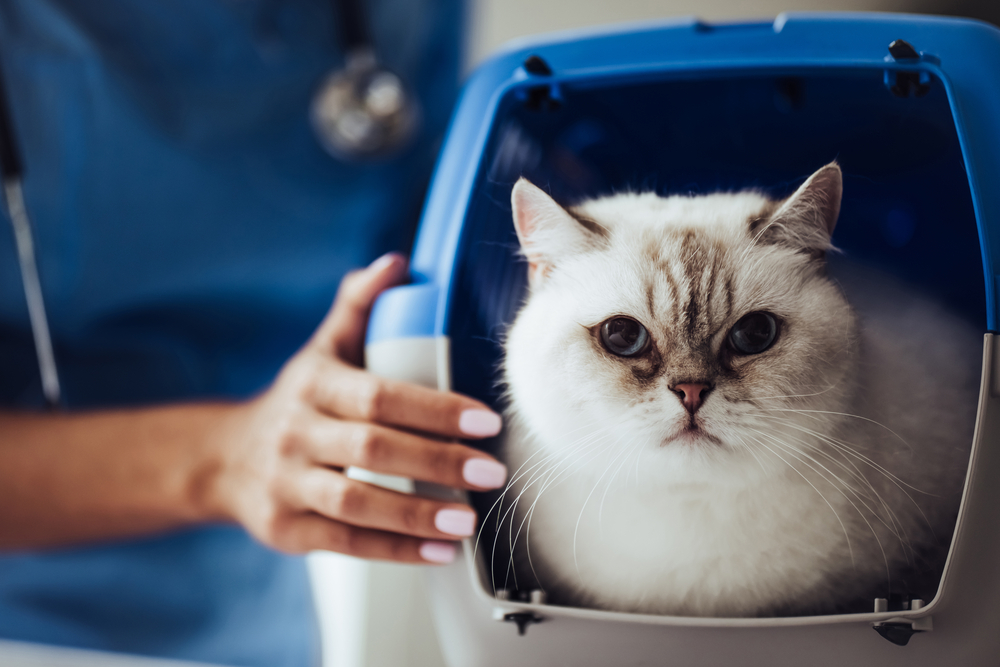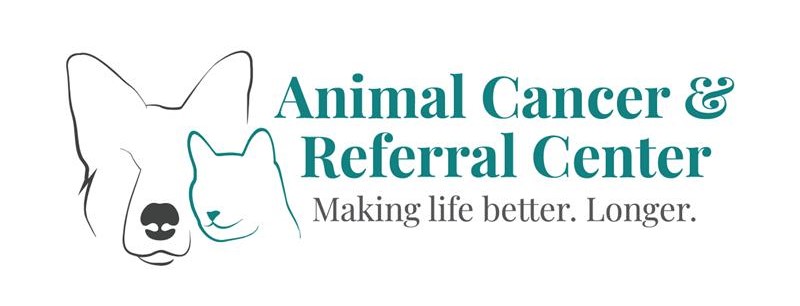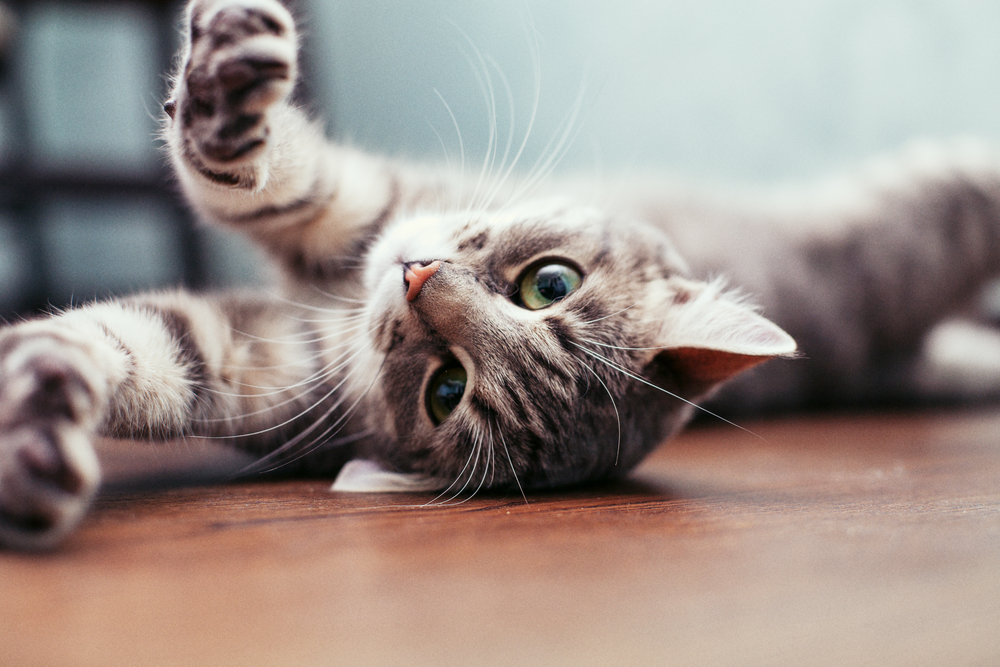It’s no secret that more dogs than cats visit their veterinarian for routine preventive care. Most dogs are easier to transport than their feline counterparts, and cats are especially skilled at hiding illness or injury. Since cats often appear healthy, pet owners may let their wellness care slide by for a year or more before wrangling them into their veterinarian’s hospital. The mantra “If it’s not broken, don’t fix it” applies to many things, but not your cat. By investing in your cat’s regular wellness care, you can help them maintain their health and happiness for many years. Here are four reasons why routine wellness care is essential for your cat.
#1: Routine wellness care spots disease in your cat earlier
Cats are both predator and prey, which means they are remarkably talented at masking anything that can be construed as weakness. A slow-growing cancer can develop for months or years before your cat shows any obvious signs, at which point, it is often too late for a good prognosis. By taking your cat for annual or biannual wellness visits, your family veterinarian can spot disease much earlier. A thorough physical exam, screening tests, and a lifestyle evaluation can detect subtle changes in your cat’s health that may indicate an underlying disease process. For example, your family veterinarian may spot a suspicious mass in your cat’s mouth during a routine oral exam after first noticing their unkempt hair coat. Most pet owners do not regularly examine their cat’s mouth, and an oral tumor can grow without them realizing, until their cat has problems eating, or it is bleeding.
#2: Regular preventive care monitors your cat’s health status
Annual or biannual wellness visits closely monitor your cat’s health progression over their lifetime. Honing in on minute changes over the course of months or years can pinpoint the earliest stage of a disease process, allowing your family veterinarian to take prompt action toward staving off a more serious illness or disease progression. As pets age, organ function diminishes, their joints degenerate, and their immune system weakens. However, close monitoring of your cat allows your family veterinarian to prevent conditions that could have kept quietly brewing until they became a significant problem. For example, feline kidney disease typically shows no signs until the condition is well-advanced. Regular blood work doesn’t detect the disease until roughly 75% of the kidneys are damaged, when management of the obvious signs is all that is possible. But, with regular blood work, your family veterinarian can monitor your cat’s kidney values over time, and may recommend a specific kidney function test that can detect disease much sooner, customize a treatment plan, and provide a much better prognosis.
#3: Routine wellness care protects your cat against disease
Regular wellness care protects your cat against a variety of preventable illnesses. Concurrent diseases can weaken an already overburdened immune system if your cat is diagnosed with cancer. An individual vaccination protocol, parasite prevention plan, and proper diet can go a long way toward keeping your cat in optimal health. During your cat’s wellness visit, your family veterinarian will discuss your cat’s lifestyle and suggest changes that will improve their health. Suggestions may include:
- A specialized diet to improve mobility and encourage weight loss
- Increased environmental enrichment to stimulate your pet mentally and ensure they are physically active
- Ongoing preventive care recommendations to ensure good health
#4: Regular preventive care ensures your cat is stronger for cancer treatments

According to the Comparative Oncology Program of the U.S. National Cancer Institute, approximately 6 million new cancer diagnoses are made in both dogs and cats each year. For cats diagnosed with cancer, you want to do everything you can to give them the best shot at a good quality of life, and remission if possible. Keeping your cat healthy in all other aspects through routine wellness care ensures they are stronger for chemotherapy, radiation, and other cancer treatments.
If your family veterinarian spots a suspicious lump or finds a troubling test result during your cat’s wellness visit, your Pearland Animal Cancer and Referral Center team is here for you. On referral to our hospital, we’ll perform a thorough diagnostic workup on your cat that will provide answers from which we can make a diagnosis, formulate a treatment plan, and determine a prognosis. Call us, and we will be there with you on your beloved cat’s cancer journey.


